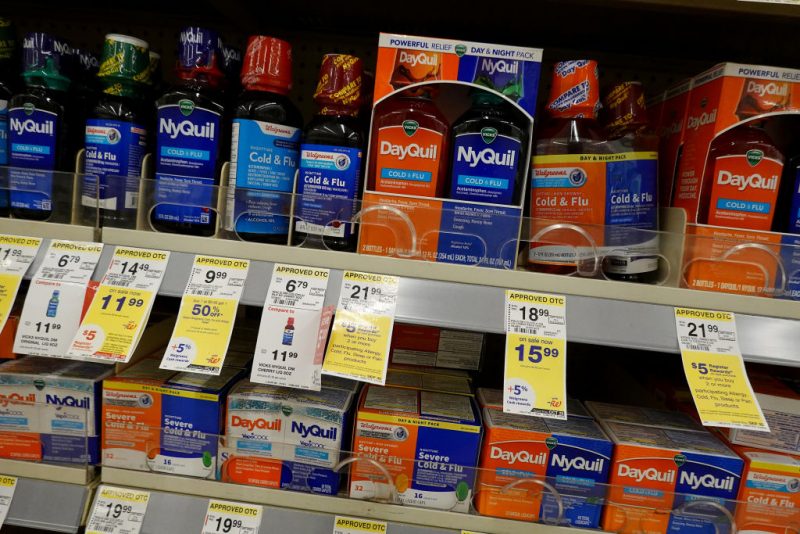
OAN’s Elizabeth Volberding
5:35 PM – Tuesday, September 12, 2023
On Tuesday, the Food and Drug Administration (FDA) advisory panel announced that phenylephrine, an ingredient found in many over-the-counter cold and allergy medications, is completely ineffective.
In a unanimous vote, 16 FDA advisors agreed that oral forms of phenylephrine are not effective at relieving a stuffy nose. The panel’s vote, which declared the drug’s oral formulations as ineffective, is anticipated to disrupt the market for over-the-counter (OTC) cold and allergy medications.
According to national consumer sales reports, this is due to the fact that most people prefer pills to nasal sprays.
Phenylephrine has been said to relieve congestion by reducing the swelling of blood vessels in the nasal passages. It is found in drugs like Sudafed, Vicks, Nyquil, Sinex Nighttime Sinus Relief and Benadryl Allergy Plus Congestion.
Phenylephrine generated nearly $1.8 billion in sales last year and retail stores in the U.S. sold around 242 million bottles containing the drug, according to data presented by FDA officials.
The FDA normally abides by the recommendations made by its advisory committees, although this is not a requirement. The government may decide to start the process of taking phenylephrine off the market, which would compel drug companies to withdraw popular cough and cold remedies off store shelves and reformulate those items.
“This drug and this oral dose should have been removed from the market a long time ago,” said Jennifer Schwartzott, a patient representative from New York. “The patient community requires and deserves medications that treat their symptoms safely and effectively and I don’t believe that this medication does.”
During the two-day advisory panel meeting, FDA scientists presented results from five studies conducted over the past twenty years regarding the effectiveness of oral phenylephrine.
As a result, the studies showed that they were not any more effective than placebo pills in treating patients with cold and allergy congestion.
Furthermore, this prompted researchers at the University of Florida to convene the two-day advisory panel meeting and petition the FDA to remove phenylephrine products from shelves in retail stores.
The Consumer Healthcare Products Association, a trade organization representing distributors of OTC drugs, announced Tuesday that it is “disappointed” by the FDA’s panel vote.
“We encourage FDA, before making any regulatory determination, to be mindful of the totality of the evidence supporting this long-standing OTC ingredient, as well as the significantly negative unintended consequences associated with any potential change” to phenylephrine’s regulatory status, Scott Melville, the organization’s CEO, said in a statement.
Additionally, this could result in a severe impact on retail pharmacy chains, which collect revenue from selling OTC cold and allergy pills.
Well known pharmaceuticals, such as Procter & Gamble, the manufacturer of Nyquil, and the Johnson & Johnson spin off Kenvue, which manufactures Tylenol and Benadryl.
In 2007, the Florida researchers questioned the drug’s effectiveness, however, the FDA allowed the items to stay on the market while waiting for more incoming research to be conducted.
FDA staff concluded in briefing documents posted this week that oral formulations of phenylephrine do not work at regular or even higher doses.
According to the FDA, only an extremely minimal amount of the medication actually relieves congestion in the nose, and if those who “swear by it” do not trust these claims then that is most likely due to a placebo effect.
Stay informed! Receive breaking news blasts directly to your inbox for free. Subscribe here. https://www.oann.com/alerts

